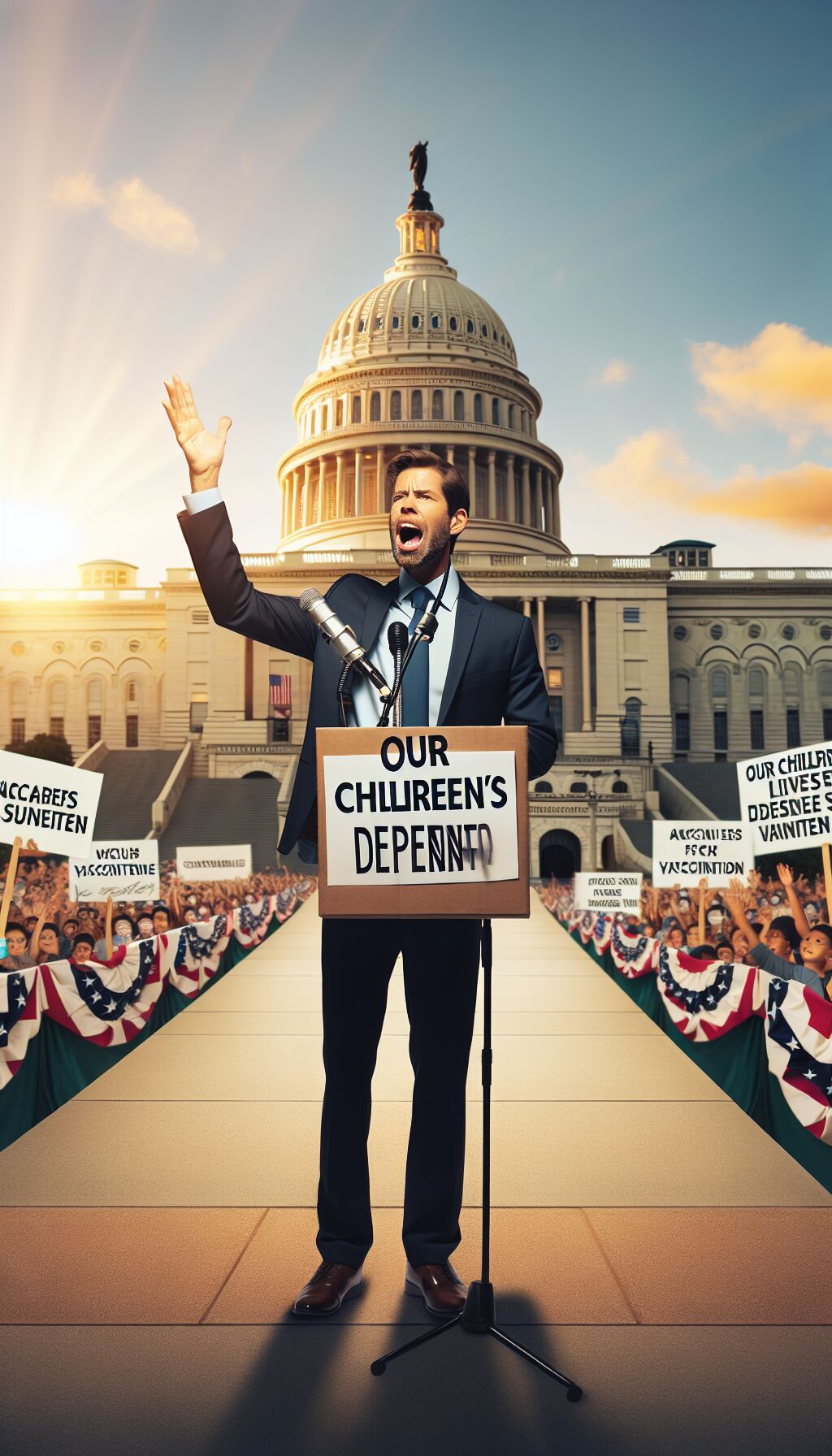Hawaii’s Governor Lobbies Against RFK Jr. Nomination for HHS Secretary
This week, Hawaii’s Democratic Governor Josh Green, who also practices medicine, has made a significant appearance on Capitol Hill. His mission? To lobby against the nomination of Robert F. Kennedy Jr. as Secretary of Health and Human Services (HHS). In a pointed op-ed for The New York Times, Green stated that “our children’s lives depend” on ensuring Kennedy does not take the helm of this crucial agency.
Green’s Background and Advocacy
Green, a practicing emergency physician, has maintained his medical career alongside his political duties. Notably, during his tenure as lieutenant governor in 2019, he played a pivotal role in combating a measles outbreak in Samoa by advocating for increased vaccination rates. This experience underscores his commitment to public health and informs his current efforts to prevent Kennedy’s nomination.
Upon arriving in Washington, D.C. on Sunday evening, Green set out a series of meetings with lawmakers that will continue until his return to Hawaii on Thursday. “As the only physician governor, I need to explain what are good picks and what maybe aren’t so good picks for the cabinet,” Green stated in a video leading up to his trip. He clarified that his opposition to Kennedy stems from genuine concern about children’s safety rather than political spite.
Concerns Over Vaccine Misrepresentation
A central element of Green’s argument against Kennedy’s nomination revolves around the latter’s controversial stance on vaccines. During his Washington trip, Green expressed the need to explore “a better place for [RFK Jr.] to be” than HHS, asserting, “his potential confirmation is a bad idea.” His concerns echo broader criticisms from notable figures, including incoming Senate Committee on Health, Education, Labor, and Pensions chair, Senator Bill Cassidy (R-La.), who has labeled Kennedy as “wrong” on vaccination issues.
This backlash gained momentum after revelations of Kennedy’s actions during the Samoa measles outbreak, where he reportedly questioned vaccine efficacy. Green and other critics, including Senator Elizabeth Warren (D-Mass), pointed out Kennedy’s prior correspondence with Samoa’s prime minister, insinuating that the measles vaccine might have exacerbated the outbreak.
Green’s Op-Ed and Call to Action
In his recent op-ed, published on Tuesday, Green expanded on his accusations against Kennedy, claiming that he spread misinformation that undermined vaccination efforts in Samoa. “Too much depends on our commitment to truth and the lifesaving power of vaccines to entrust Mr. Kennedy with the direction of these programs. Our children’s lives depend on it,” Green passionately argued.
Kennedy’s Response and Supporters
In response to the mounting criticism, Kennedy’s team has remaining largely silent, despite repeated inquiries from various media outlets. However, during a separate appearance, RFK Jr. asserted that he “never told anybody not to vaccinate” and emphasized his support for vaccines like the polio vaccine. His defenders argue that Kennedy’s proposed policy changes would be rooted in scientific evidence.
Nina Teicholz, a nutrition expert and founder of The Nutrition Coalition, expressed her belief in Kennedy’s rational approach to health policy: “I think that Kennedy has aimed to stand for evidence-based changes to policy.” Similarly, Dr. Vinay Prasad remarked on the media’s portrayal of Kennedy, suggesting it has been “poorly and unfairly” executed, neglecting the validity of many of his ideas.
Conclusion: A Divergent Viewpoint on Health Leadership
As Governor Green continues to advocate against RFK Jr.’s nomination, the discussion surrounding leadership in health and human services remains a complex interplay of science, politics, and public perception. With the potential confirmation of Kennedy still under consideration, the upcoming dialogues between lawmakers and advocates are likely to shape the future of health policies in America. Green’s trip serves as a poignant reminder of the responsibilities that come with health leadership and the stakes involved in the nomination process for such pivotal roles.
